Thymesia Review | “Bring Out Your Dead” for a New Soulslike Adventure
Can OverBorder's new indie Soulslike fill Bloodborne's shoes?
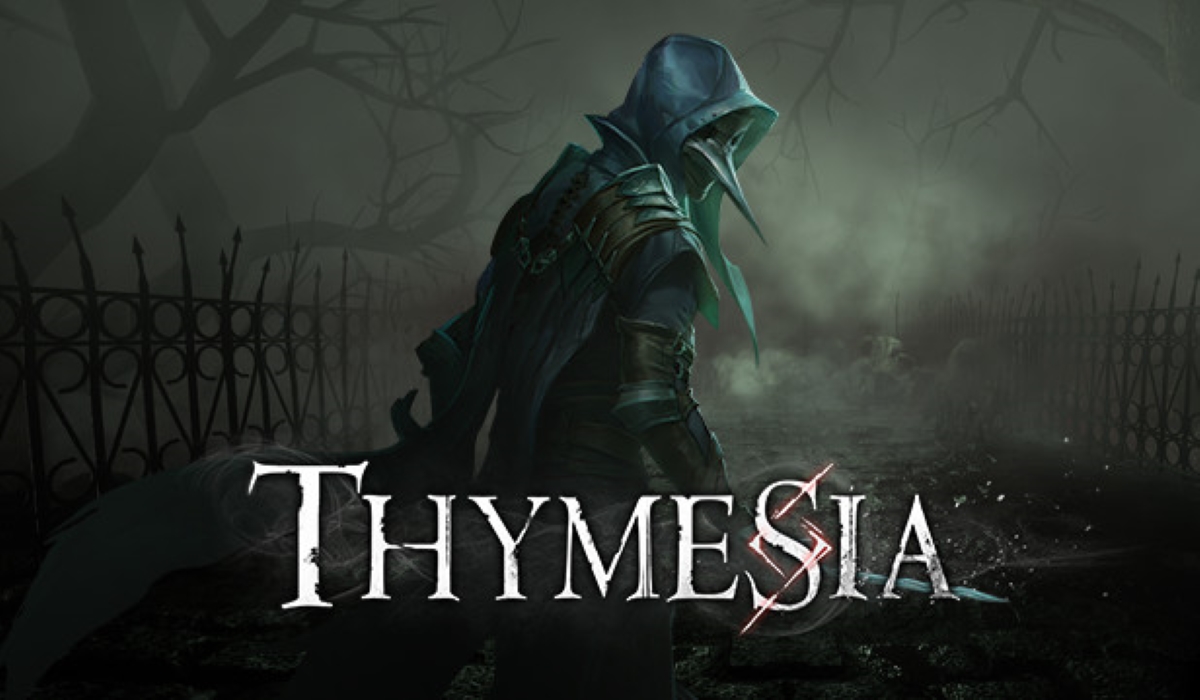
Thymesia is a new Soulslike action RPG from indie developer OverBorder Games, set for release on Nintendo Switch, PC, PS5, and Xbox Series X|S on August 18, 2022. The game puts players in the role of Corvus, an enigmatic saber-wielding human/raven hybrid, who stands last line of defense for Hermes Kingdom, an alchemy-obsessed monarchy perched atop a giant tree, that has seen its once prosperous nation devolve into chaos and bloodshed due to a new plague that turns people into grotesque monsters. Through exploring his memories, completing quests, and slaying bosses, Corvus will determine the fate of Hermes Kingdom through his actions and decisions. This review will critically examine Thymesia and its many facets, providing everything you should know about the game without any spoilers.
A Unique Soulslike Experience
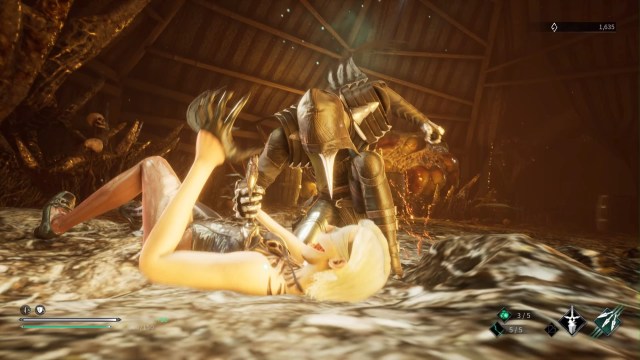
In the Soulsborne genre, gameplay is king, and the debut effort from OverBorder Games is no exception to that rule. Thymesia reintroduces the prototypical fast-paced, tactical, challenging combat found in its Soulsborne counterparts, but with a variety of unique features that make this game a one-of-a-kind experience. While Thymesia lacks the stamina bar found in other Soulslike titles, Soulsborne veterans will be pleased by the game’s adoption of many gameplay elements and the standard control scheme of the genre, as well as the challenge of mastering Thymesia’s unique features, which are not available in other titles. For instance, Thymesia features a deep “Plague Weapon” system. Through Corvus’ “plague energy,” he can conjure astral forms of 21 weapons that can be either “reaved” (aka copied) from enemies mid-fight, or crafted by picking up weapon shards from executed foes. These magical weapons each have unique features that can be useful for different build types and are the lifeblood of Thymesia’s core experience.
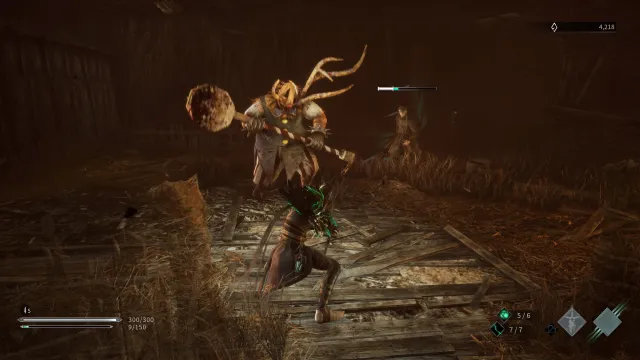
Furthermore, Thymesia’s combat system presents a new tactical challenge in the form of its enemies’ dual health bars, with a white-colored bar representing an adversary’s total health and a green-colored bar representing their wounds. When enemies are damaged by Corvus’ saber or Plague Weapons, they merely become wounded and can heal back to full health, unless Corvus slings his feathers to keep wounds open (and interrupt incoming attacks), or slashes enemies with his unique claw weapon that can drain the green health bar. This creates an exciting gameplay loop that makes every encounter an urgent, high-stakes battle to whittle down enemy health bars before they can heal their wounds.
Soulsborne Meets Action-Adventure

Unlike its Soulsborne counterparts, Thymesia also takes influence and borrows elements from modern action-adventure games. Through leveling up Corvus’ strength, vitality, or plague attributes with memory shards, he can also add a “talent” from skill trees reminiscent of action-adventure titles, such as those found in the Middle earth: Shadow of Mordor series. These talents can supply Corvus with additional skills for his Saber, Deflection, Dodging, Claw, Feathers, and Strategies, through fully customizable skill trees, which can be adjusted at the player’s whim. This similarity to modern action-adventure games ultimately makes Thymesia an easier game than its genre predecessors and bridges the gap for Soulsborne newbies who might have previously shied away from the challenging game genre.
Related: Stranger of Paradise Final Fantasy Origin Review: Let’s Do the Time Loop Again
It’s A Small World… of Plagues and Monsters
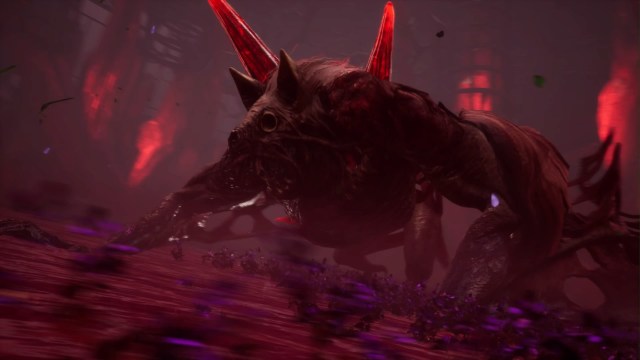
Hermes’ Kingdom is crawling with a wide range of threats that Corvus must deal with, as Thymesia provides massive enemy variation across its story. From standard enemies to mini-bosses, as well as challenging boss battles, which can span from towering nightmarish monsters to deadly, magic-using sword masters, players will undeniably find themselves seeing the “Memory Interrupted” screen courtesy of Thymesia’s many foes. Just like the best of its Soulsborne ancestors, each location to explore and boss to vanquish in Thymesia feels as though the game was crafted by artisans of the genre, and OverBorder Games deserves credit as being a studio that understands what it takes to make a great Soulslike experience.
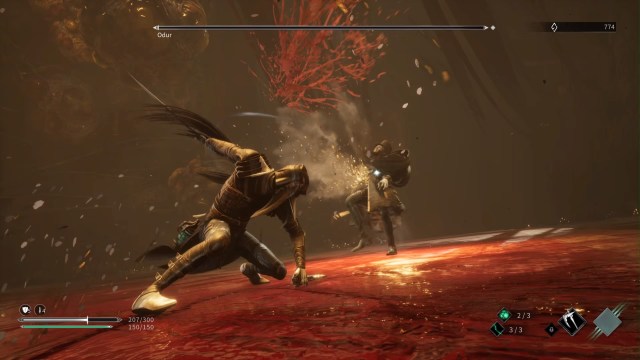
However, unlike the best examples of the Soulsborne genre, unfortunately, Thymesia is a very short experience, with far fewer bosses than the average Soulsborne game, and Hermes Kingdom only features three overarching locations in which the game’s story missions and “sub-quests” take place. To make matters worse, Thymesia lacks the “new game plus” commonly found within the Soulsborne subgenre, which could have been a boon to the game’s replayability.
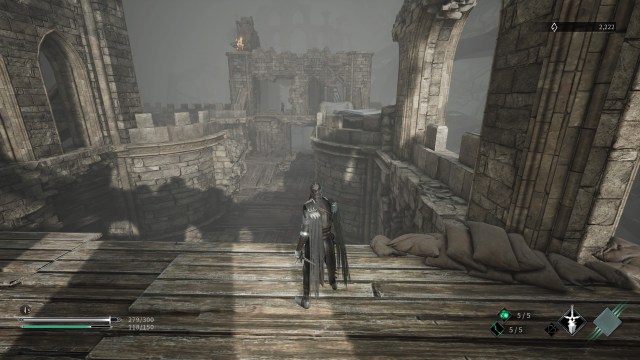
However, despite Thymesia’s faults, OverBorder Studio clearly focused on quality over quantity, as each location featured feels distinctive and special. Set to the beautiful, haunting musical score from Ben Ridge, CJ Kao, and Yen-Ming Huang, battling through the poison-cloud-drenched circus setting of the Sea of Trees, to the blood-soaked library of the Royal Garden, and the imposing labyrinth of Hermes Fortress truly make Thymesia a visual and auditory experience to behold, especially with its 4K resolution, running at 60 frames per second. I just wish there was more of it to be experienced.
Once Upon a Time in Hermes Kingdom…
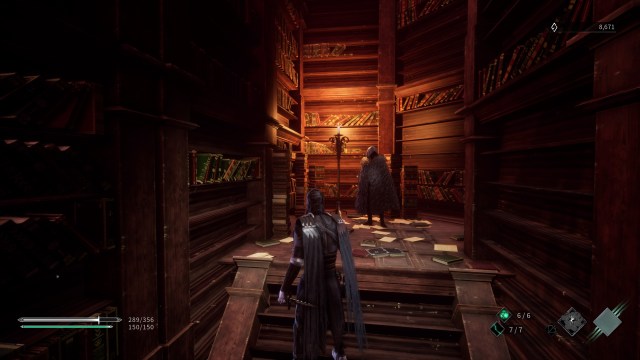
While Soulsborne titles rely heavily on environmental storytelling, Thymesia takes this to another level, as the game is devoid of any voice acting (aside from voice sound effects), and requires the player to sift through its 94 “story bits” and 22 “lore” dialogues in order to begin to understand the complexities of its world and even the general plot. Once you’ve undergone this massive undertaking of trying to piece together its story, Thymesia’s overarching narrative still feels highly avant-garde at best to somewhat convoluted at worst. Although Thymesia’s exploration of memories, showing the struggle to understand the truth of the past and the present is an appealing, unique concept, many of the plot threads seem to only create more confusion, as each discovery made or character introduced only brings more questions.
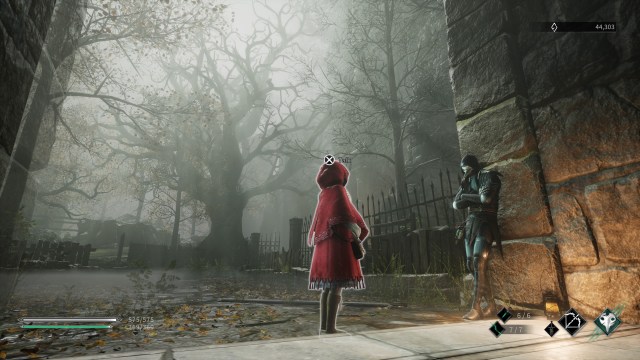
Even though avant-garde, challenging storytelling is commonplace within the Soulsborne class of games, unlike its genre counterparts, Thymesia lacks the compelling NPCs that could help to bring its world to life more. Although Thymesia’s unique setting and lore have a lot of potential, unfortunately, the game simply lacks the necessary cast of characters who could create the captivating story that Hermes Kingdom and Thymesia’s brilliant gameplay deserves.
Thymesia vs. Bloodborne
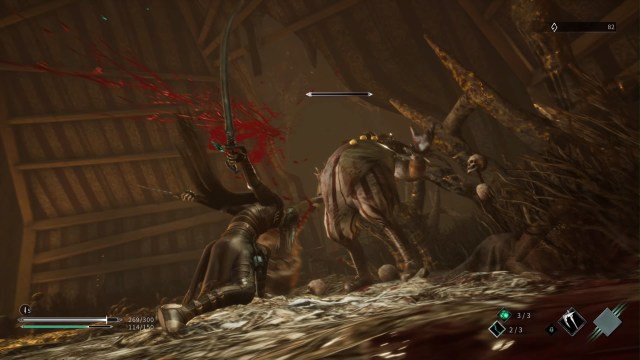
If you go into Thymesia expecting the game to contend with Bloodborne, Elden Ring, or any of FromSoftware’s legendary catalog for that matter, you will likely leave disappointed. Thymesia lacks the deep RPG customization, massive scope, and multiplayer elements that have made FromSoftware a household name in the gaming community. However, this reality does not take anything away from Thymesia’s tight gameplay experience, intricately designed levels, or gorgeous graphical fidelity that make it a worthy new title within the genre. In fact, in many ways Thymesia has cemented itself in a class of its own within the Soulsborne mythos, as through its melding of Soulsborne and action-adventure, OverBorder Games has created a new subgenre that could be dubbed something along the lines of “Beginner’s Souls” or “Approachable Souls.”
While OverBorder Games describes Thymesia as a “grueling action RPG,” unlike its Soulsborne predecessors, the game gives players a massive arsenal of tools, tutorials, and talents that make it a much more forgiving experience for newcomers. I would go as far as to say that Thymesia is a perfect starter pack for someone who has never played a Soulsborne game before, as its short length and accessibility can act as training wheels to understand the core gameplay elements of its much more challenging FromSoftware Soulsborne counterparts.
Related: Elden Ring Review | Unshackled Glory
Pros and Cons:
- Pros:
- Fantastic Soulslike combat
- Distinct gameplay elements that can’t be found elsewhere
- Perfect for genre newcomers
- Great enemy variation
- Memorable boss fights
- Beautiful graphics, 4K resolution/60 frames per second
- Excellent musical score
- Large plague weapon variety
- Cons:
- Way too short of an experience, no new game plus
- Peripheral story that lacks compelling NPCs
Verdict
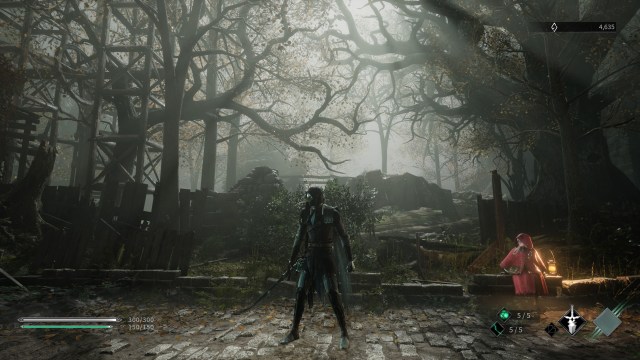
Whether you’re a Soulsborne veteran, desperately waiting for a Bloodborne PS5 remaster, or a newcomer wanting to dip your toe into the challenging genre, Thymesia is a game that should be on your wish list. While an imperfect experience, OverBorder games should be commended for their debut Soulslike effort, and any Thymesia DLC, sequels, or new IPs from this up-and-coming studio should be met with eager anticipation.
Thymesia Score: 8
A copy of this game was provided to Prima Games for review. Reviewed on PS5.
